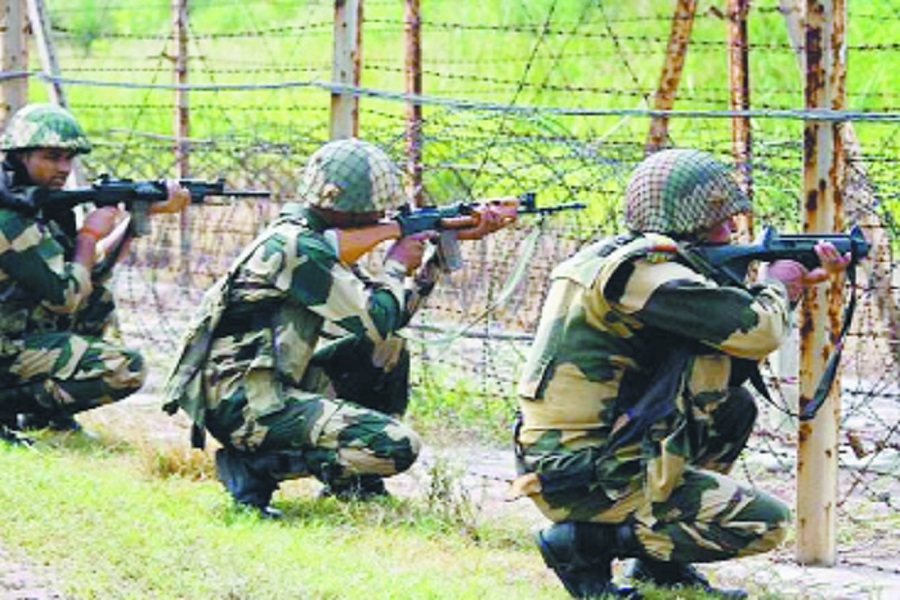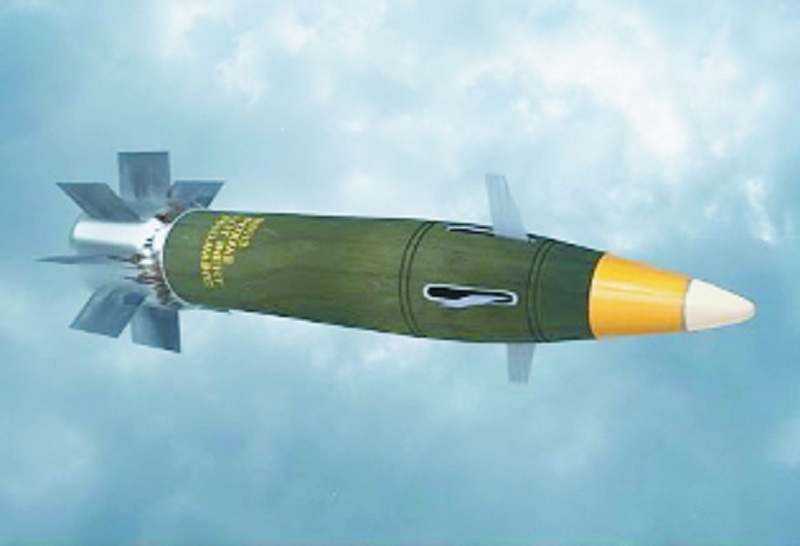BSF launches exercise to fortify anti-infiltration grid along LoC
| Date :08-Jul-2019 |

By Neelabh Srivastava
NEW DELHI:
A MEGA exercise to fortify the ‘anti-infiltration grid’ along the Pakistan border in Punjab and Jammu has been launched by the BSF, which has mobilised its entire senior field brass, thousands of troops and machinery deployed in these forward areas. The operation, code named ‘Sudarshan’, was launched on July 1 and will cover the entire over 1,000 kms length of the India-Pakistan International Border. While Jammu shares about 485 kms of the sensitive IB with Pakistan, about 553 kms of the front is in Punjab. Further, it runs down towards Rajasthan and Gujarat on India’s western flank. The Border Security Force is the primary force guarding this frontier as the ‘first line of defence’.
Top sources in the security establishment told PTI that a huge assortment of heavy machinery, communication interceptors and mobile bulletproof bunkers have been mobilised, backed by thousands of BSF personnel as part of the exercise. Frontier and Battalion Commanders (from the Inspector General to the Commandant rank), their second-in-commands and company (unit) commanders of the about 40 battalions of the BSF are camping in the forward areas of the two States to finish the operation within a fortnight and be at their bases by July 15, they said. Multiple patrols are being undertaken to strengthen Indian defence positions for launching offensive action from the point of view of sealing the front against infiltration of terrorists, drug mules and also to ensure a befitting reply to unprovoked firing from the Pakistani side.
The mega exercise has been named ‘Sudarshan’ drawing from the legendary and mythological cutting wheel or the ‘sudarshan chakra’ on Lord Krishna’s finger that decimates the enemy with sharp precision and returns to its original place in quick time, official sources said. The Commanders of the force have been asked to prepare their watch towers and sentry posts better, replenish arms and ammunition dumps, strengthen artillery positions, check and plug border fence breaches, detect underground and cross-border tunnels and make all operational and logistical arrangements to strengthen the vigil along the sensitive and infiltration-prone border.
The Commanders have been asked to ensure that the jawans follow the standard operating procedures and that there is an all-time stock of bulletproof vests, ‘patka’ and combat gear to ensure their safety, they said. They have been asked to ensure that the ‘sarkanda’ or the elephant grass on the border is cut for better visibility against any movement on the border and instances of drugs smuggling through couriers that is rampant across the Punjab border and some instances of which are also reported on the Jammu side, they said. As part of the operation, big earthen mounds on the International Border will be flattened, new bunkers and ‘ditch-cum-bandh’ (trenches) are being dug and BSF posts are being better armoured against sniper firing incidents that have claimed lives of many troops in the past, they said.
A fleet of heavy and small all-terrain vehicles has been mobilised in these areas as the field commanders are moving in those localities, they said. Some fresh 4x4 vehicles have been dispatched to be placed on the borders for armed troops, sources said. The operation will end by the time monsoon unleashes heavy rains, they said. While sources dismissed suggestions that the exercise was a reaction to a recent similar movement being noticed on the Pakistani side, they said this was being done to only “fortify Indian defences against infiltration, unprovoked firing and Pakistan Border Action Team (BAT) attacks.”

Army to buy howitzer ammunition for long-range accurate strikes
Army is planning to acquire the Excalibur artillery ammunition from the Americans to acquire the capability to hit enemy positions close to populated areas without causing collateral damage
By Ajit K Dubey
NEW DELHI,
SEEKING to acquire the capability to hit enemy positions close to populated areas without causing collateral damage, the Indian Army is in the process of acquiring Excalibur guided long-range artillery ammunition which can strike targets more than 50 km away. “The Indian Army is planning to acquire the Excalibur artillery ammunition from the Americans under the emergency procurement procedures,” Government sources said here.
The acquisition case is being processed under the emergency powers for procurement of weapon systems and ammunition to be war-ready in post-Pulwama attack-like situations. The ammunition is being acquired for units deployed along the Line of Control where artillery shelling by Pakistan is a common feature. The ammunition can be busted in the air as well as after its penetration into bunker-type structures by using its different fuses. In a recent meeting, the Army briefed Defence Minister Rajnath Singh about its plans to acquire the guided ammunition from the US which uses the GPS system to hit targets at ranges more than 50 km. The Excalibur ammunition was developed in the US for improving the accuracy of the artillery shells in the war in Afghanistan which the Americans have been fighting for almost two decades now.
The Army has also started inducting the US-made M-777 ultra-light howitzers which can be used for firing the Excalibur ammunition. The Army has also gone ahead with the purchase of the Spike anti-tank guided missiles which can be used against the enemy armoured columns. The Indian Air Force recently acquired multiple ammunition and spares for its fighter aircraft to be war-ready. The acquisition by the Air Force includes the Balakot airstrike-fame Spice 2000 bombs, made by Israel, including the version which can penetrate and destroy fortified structures. The IAF has also acquired the Strum Ataka anti-tank guided missiles for its Mi-35 attack helicopters.